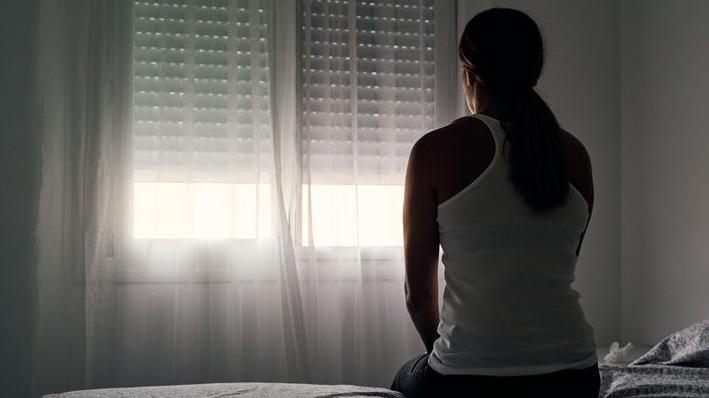Euros matches 'increase risk of domestic violence'

Abuse services in Leeds have said there have already been an increase in the number of calls in the week since the Euro 2024 began
- Published
Domestic abuse charities in Leeds have said they are "braced" for an increase in calls for help during Euro 2024.
Figures from the Leeds Domestic Violence Service (LDVS) suggest that in the week since the football tournament started, there has already been a rise in incidents.
Major competitions are thought to increase the risks for victims because of heightened "emotions" and greater alcohol intake among perpetrators.
The charities even believe there is a "risk to life" in the aftermath of matches.
'They can't escape'
Increasing numbers of fans watching live football at home rather than in pubs and bars has also been blamed for upticks in violence.
Leeds Women's Aid chief executive Nik Peasgood said: "We're very apprehensive. We've seen over the last few years the closures of pubs.
"Research shows that people generally tend to watch more football at home now; often women will be in their home and they can't escape.
"Survivors bear the brunt of that anger, rage and joy.
"Football doesn't cause abuse, but factors around it can increase the prevalence of it; it's going to exacerbate the situation."
The service, which is provided by a consortium of charities, has received 22% more calls since the Euros kicked off - an increase of 19% compared to June 2023. Ninety-five per cent of callers were women.
Ms Peasgood added: "Calls could potentially double - that's what we've seen historically and we are already seeing the trend.
"If England lose, domestic abuse can increase by up to 40%; if they win, surprisingly, it can still increase by around a quarter.
"If domestic abuse has happened, there is trepidation about what is going to happen next.
"It's the build-up, the walking on eggshells, the fear of what may happen after games.
"Lots of survivors like football so you've got a mixture of them really wanting England to do well, but being absolutely terrified."
Victims are being urged to seek help if they are experiencing abuse.
"We don't want people to be going through this on their own, and just feel totally isolated and feel like it's their fault," said Ms Peasgood.
"It isn't your fault."
If you have been affected by any of the issues in this story visit BBC Action Line.